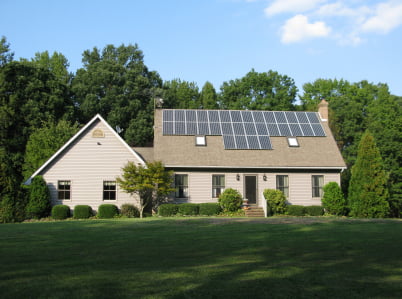Calif. Civil Code §714 and Government Code §65850.5
Amended by A.B. 2188
Effective date: January 1, 2015
Restrictions on the use of solar energy and photovoltaic systems are prohibited if they:
- decrease the efficiency of the system by 10%; or
- increase the cost of the system by more than $1,000.
Any government or private entity requiring approval for the installation of a solar energy system now has 45 days (reduced from 60 days) after receiving an application to issue a denial. If the entity does not timely deny the application, the application is deemed approved.
Solar energy systems and solar collectors for heating water in single family residences (SFRs), commercial buildings or swimming pools are required to be certified by an accredited listing agency that evaluates solar energy systems according to independent criteria, such as the American National Standards Institute or the American Association for Laboratory Accreditation. This replaces previous requirements that solar energy systems be certified by the Solar Rating Certification Corporation (SRCC) or other nationally recognized certification agency.
By September 30, 2015, all local governments operating a utility are required to adopt ordinances creating an expedited permit process for small residential rooftop solar energy systems. A small residential rooftop solar energy system:
- is no larger than a 10 kilowatts alternating current nameplate rating or 30 kilowatts thermal;
- conforms to all applicable state and local fire, structural, electrical and other building codes;
- is installed on an SFR or duplex; and
- contains a solar panel or module array that does not exceed the maximum legal building height.
Editor’s note – The state is currently in the process of drafting the 2nd edition of the California Solar Permitting Guidebook.
The permit process is to integrate:
- the checklists and standard plans contained in the most current version of the California Solar Permitting Guidebook adopted by the Governor’s Office of Planning and Research;
- any modifications due to local climactic, geological, seismological or topographical conditions; and
- a checklist of all compliance requirements published on the city’s or county’s public web site.
The local government is to approve and issue a permit to an applicant upon completion of all requirements. If an application is incomplete, the local government is required to provide written notification to the applicant of all corrections required for permit issuance.
The local government is also required to permit electronic submission of applications and electronic signatures on all forms. If the local government is unable to accept electronic signatures, the ordinance is to provide reasons for non-acceptance of electronic signatures.
Solar energy systems eligible for expedited review only require one inspection completed in a timely manner. However, a separate fire inspection may be completed if the local government does not have an agreement with a local fire department to conduct fire safety inspections on the fire department’s behalf. Any solar energy system which fails inspection is subject to subsequent inspections.
A local government may not condition permit approval on a homeowners’ association (HOA)’s approval of the small residential rooftop solar energy system.
Read more:
Read the bill text.
See “Energy efficiency 101 for California real estate agent,” Chapter 24.1 of first tuesday Realtipedia Volume 6: Real Estate Economics.
Current first tuesday students may access Realtipedia from the Student Homepage.














